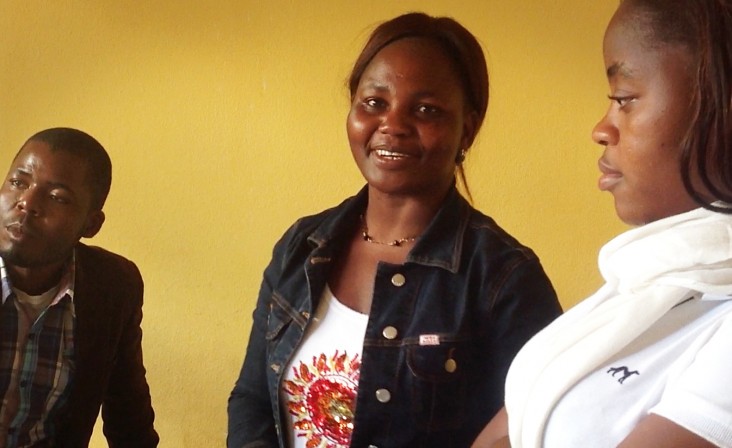
January 2016—Nurses in Angola recently discovered a novel way to remember the right combination of drugs to treat HIV. They substituted the lyrics to Frere Jacques, the well-known children’s nursery rhyme, with lyrics pertaining to administration of the medication. Newly trained health workers are now helping more pregnant women living with HIV in rural areas to get the treatment they need.
In 2014, the Angolan National AIDS Program developed a plan to expand the prevention of mother-to-child transmission throughout Angola to ensure that pregnant women living with HIV have access to antiretroviral treatment (ART). According to the plan, as soon as a woman is diagnosed with HIV, her health care provider would prescribe her a regimen of three ART drugs, which she would continue to take for life.
The treatment plan seemed to be straightforward, but nurse trainer Helena Cumbelembe soon realized that carrying this out in a remote health center, 40 kilometers from the nearest municipal hospital, would not be simple.
USAID’s Strengthening Angolan Systems for Health project, implemented by JHPIEGO, trained Cumbelembe so she could in turn train six health care workers at the Chorinde Health Center to take care of HIV patients. The six workers were eager to help but, as with many health care workers in rural Angola, they lacked basic training in nursing and only completed limited primary education.
“Learning is a slow process as the nurses could not pronounce the names of the ART drugs nor remember the combination of the necessary drugs,” said Cumbelembe.
Wondering what she could do, Cumbelembe and her fellow nurse trainer came up with new lyrics to Frere Jacques. “It was quick and easy,” she said. “The nurses sang and danced while remembering the combinations very well. Even when I went back for supervision visits, they recited them correctly.”
Cumbelembe’s struggle to successfully train these health care workers reflects the reality of rural Angola. After decades of war, many of the educated nurses immigrated to cities, leaving the rural areas with less educated and less skilled health professionals. Many rural health care workers who provided first aid during the civil war were integrated into the formal health system in the post-war era.
Through the Strengthening Angolan Systems for Health project, which is funded by the President’s Emergency Plan for AIDS Relief, USAID supports Angola’s National Health Plan to create an AIDS-free generation. By training health care workers in HIV treatment, 66 percent of the 524 HIV-positive pregnant women in Huambo received antiretroviral treatment in 2014, compared to only 13 percent in 2013. The project runs from 2011 to 2016.
LINKS
Follow @USAIDAngola, on Facebook, on Flickr







Comment
Make a general inquiry or suggest an improvement.